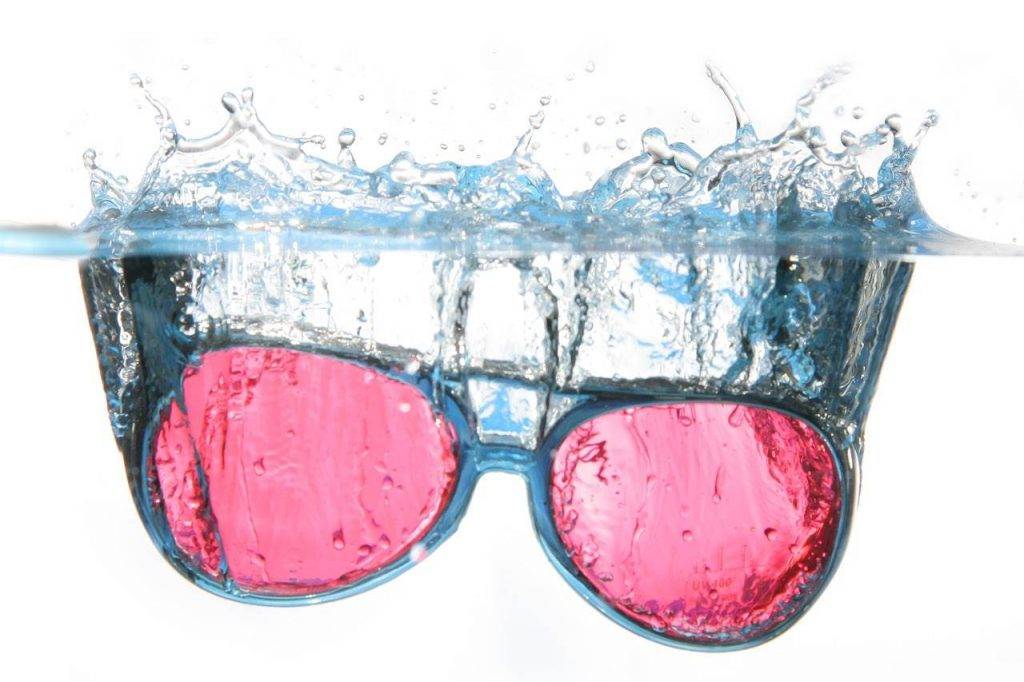If your contact lenses make your eyes red or dry, you most likely are over wearing your lenses.
According to the CDC: “Wearing contact lenses puts you at risk of several serious conditions including eye infections and corneal ulcers”.
Contact lenses are a popular way to correct vision without affecting one’s appearance or interfering with sports and other activities.
At the same time, contact lenses are medical devices that come into contact with the surface of the eyes and need to be worn according to the recommendations of the manufacturer and your eye doctor.
Up to 50% of all contact wearers don’t comply with the eye doctor’s medical advice.
What is contact lens overwear syndrome?
Overwear is one of the most commonly reported problems related to contact lenses.
When you wear contact lenses longer than the prescribed amount of time, you risk developing contact lens complications.
When contact lenses are used for an excessive period of time, they obstruct the oxygen absorption process. A correctly fitted contact lens worn for the appropriate time period floats on the eye’s surface, allowing enough of your tear film to flow underneath it and supply the cornea with vital oxygen.
To stay healthy, your eyes require oxygen. Since the cornea doesn’t have blood vessels, it must obtain oxygen from the atmosphere.
The contact lens acts as a barrier between the eye and the oxygenated tears, and an ‘old’ contact lens will reduce the flow of oxygen to the cornea.
In a continuous process, environmental oxygen enters your tear film and diffuses throughout your entire cornea. During the same process, carbon dioxide is emitted.
Is overwear common?
A large disconnect exists between perceived and actual compliance exhibited by contact lens users.
When asked about their lens wear and care, around 85% of patients report good compliance, but upon further investigation, this is far from the truth.
The reality is that up to 50% of all contact lens wearers do not comply with their eye doctor’s instructions.
Virtually all contact lens wearers surveyed reported at least one risky contact lens hygiene behavior.
The participation in potentially hazardous behaviors does not appear to be related to a lack of knowledge, as 80% of patients surveyed were aware of established risk factors, but still performed at least one high risk behavior.
Signs of contact lens overwear
Over wearing contact lenses results in the lenses drying out and becoming misshapen, however the most concerning issue is the reduction in oxygen supply to your eyes.
Most common signs to look out for are:
- Red eyes
- Eyes feel irritated or dry
- Contact lenses don’t feel as comfortable
- New blood vessels in the whites of your eyes
New blood vessels on the white of your eyes are seen as a bloodshot eye, this is a sign that the cornea is in need of another source of oxygen.
If you experience any of these symptoms, remove your contact lenses from your eyes and visit an eye doctor near you for an examination.
SEE RELATED: Why Are My Contact Lenses Uncomfortable?
Is contact lens over wear serious?
Yes.
Overuse of contact lenses can result in serious eye complications.
The corneal epithelium, a superficial lawn of cells on the cornea, can be damaged by a lack of oxygen (hypoxia). The corneal epithelium has a variety of purposes, one of which is to protect the cornea from infection.
As a result, the main problem with contact lens overwear is that it erodes the corneal epithelium, resulting in a corneal abrasion — an open sore on your cornea.
Infection can spread through these abrasions, producing corneal scarring. This can cause your vision to deteriorate and distort. Infections that are severe enough can cause permanent vision loss, including blindness.
Can contact lens overwear be treated?
Yes.
Your eye doctor will examine the effect on your eye and prescribe the best management plan to allow your eyes to heal.
You may need to stop using your contact lenses until your corneas heal if contact lens overwear syndrome is identified early enough, but if left too long, you may require medications and not be able to wear lenses for days, weeks or even longer.
To alleviate the irritation, you may require prescription eye drops, including antibiotics and steroids and well as an eye gel or ointments.
Remove your lenses and contact your eye doctor if you suffer from any of the symptoms of overwear syndrome.
LEARN MORE: Guide to Contact Lenses
Schedule an appointment with an eye doctor near you, who can properly fit you for contact lenses and teach you how to care for them properly.
More than 1 in 2 of all contact wearers don’t fully comply with the eye doctor’s medical advice – the result can severely impact the quality of your life.

